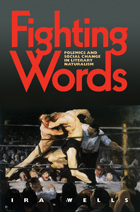2 books about Literary Naturalism

Dissecting Stephen King
From the Gothic to Literary Naturalism
Heidi Strengell
University of Wisconsin Press, 2005
In a thoughtful, well-informed study exploring fiction from throughout Stephen King's immense oeuvre, Heidi Strengell shows how this popular writer enriches his unique brand of horror by building on the traditions of his literary heritage. Tapping into the wellsprings of the gothic to reveal contemporary phobias, King invokes the abnormal and repressed sexuality of the vampire, the hubris of Frankenstein, the split identity of the werewolf, the domestic melodrama of the ghost tale. Drawing on myths and fairy tales, he creates characters who, like the heroic Roland the Gunslinger and the villainous Randall Flagg, may either reinforce or subvert the reader's childlike faith in society. And in the manner of the naturalist tradition, he reinforces a tension between the free will of the individual and the daunting hand of fate.
Ultimately, Strengell shows how King shatters our illusions of safety and control: "King places his decent and basically good characters at the mercy of indifferent forces, survival depending on their moral strength and the responsibility they may take for their fellow men."
Ultimately, Strengell shows how King shatters our illusions of safety and control: "King places his decent and basically good characters at the mercy of indifferent forces, survival depending on their moral strength and the responsibility they may take for their fellow men."
[more]

Fighting Words
Polemics and Social Change in Literary Naturalism
Ira Wells
University of Alabama Press, 2013
An entirely new understanding of what literary naturalism is and why it matters
Ira Wells, countering the standard narrative of literary naturalism’s much-touted concern with environmental and philosophical determinism, draws attention to the polemical essence of the genre and demonstrates how literary naturalists engaged instead with explosive political and cultural issues that remain fervently debated today. Naturalist writers, Wells argues in Fighting Words, are united less by a coherent philosophy than by an attitude, a posture of aggressive controversy, which happens to cluster loosely around particular social issues. To an extent not yet appreciated, literary naturalists took controversial—and frequently contrarian—positions on a wide range of literary, political, and social issues.
Frank Norris, for instance, famously declared the innate inferiority of female novelists and frequently wrote about literature in tones suggestive of racial warfare. Theodore Dreiser once advocated, with deadly earnestness, a program of state-run infanticide for disabled or unwanted children. Richard Wright praised the Stalin-Hitler agreement of 1939 as “a great step toward peace.” While many of their arguments were irascible, attention-seeking, and self-consciously inflammatory, the combative spirit that fueled these outbursts remains central to the canonical texts of the movement.
Wells considers Frank Norris’s The Octopus in light of the emerging discourses of environmentalism and ecological despoliation, and examines the issue of abortion in Theodore Dreiser’s An American Tragedy. A chapter on Richard Wright’s Native Son takes issue with traditional humanistic readings of its protagonist by analyzing the disturbing relationship between terrorism and lynching as a crime and punishment that resists formal incorporation into the law.
By highlighting the contentious rhetoric that infuses the canonical texts of literary naturalism, Fighting Words opens up a wide-ranging and interdisciplinary interrogation of racial, sexual, and environmental polemics in American culture.
[more]
READERS
Browse our collection.
PUBLISHERS
See BiblioVault's publisher services.
STUDENT SERVICES
Files for college accessibility offices.
UChicago Accessibility Resources
home | accessibility | search | about | contact us
BiblioVault ® 2001 - 2024
The University of Chicago Press









